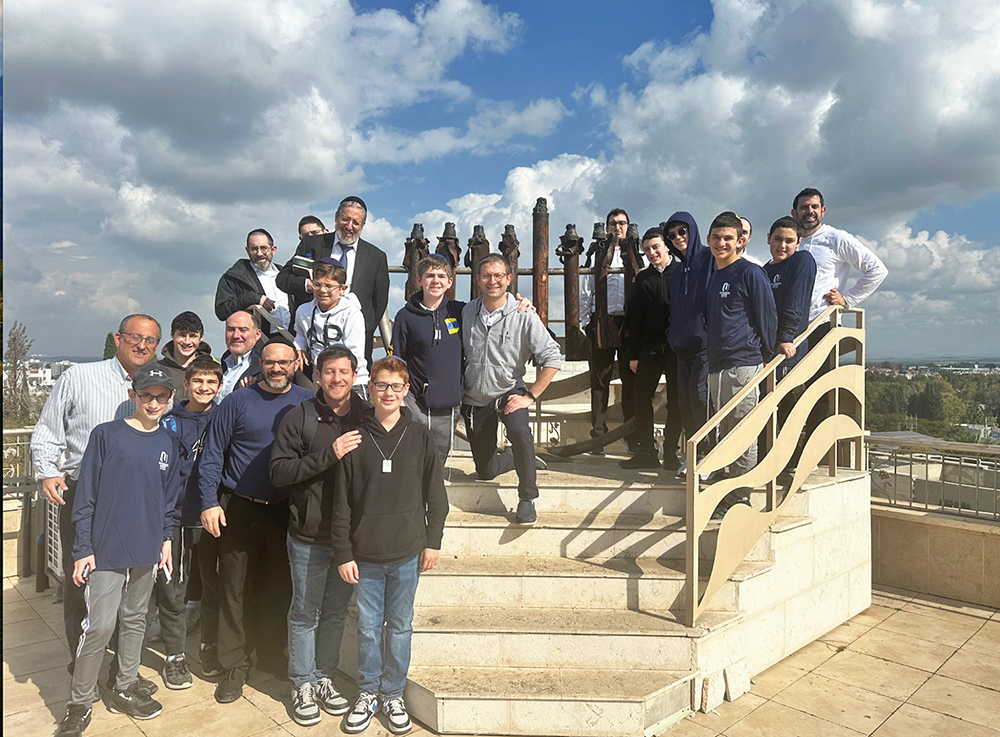
(Courtesy of the OU) Like many Jewish community members who learned of the October 7 calamity, Binyamin Muschel of Boca Raton, Florida, felt driven to travel to Israel to support its citizens in person, rather than from afar. When a unique OU father-son Israel mission came to his and his wife’s attention, they jumped at the chance for Binyamin to participate with their 15-year-old son Sruli — even though it meant that the family would spend their Yeshiva Week winter vacation apart.
“The Father-Son Israel Mission was an opportunity for us to transmit our values to the next generation; that when something like this happens, this is our response,” said Muschel. “This is how we wanted to spend our time. Sruli and I have numerous interests, but not all of them overlap. Yet we are both seriously passionate about Yiddishkeit and the centrality of Israel in Yiddishkeit. It was incredibly meaningful to travel to Israel together; something we had never done previously.”
OU Executive Vice President Rabbi Moshe Hauer noted, “There is such power in standing side by side with our children and living our values of chesed, empathy, volunteerism and achdut at a time when our brothers and sisters in Israel most need our support. The Orthodox Union is privileged to have brought fathers and sons together on this mission. They no doubt returned home with a stronger connection to each other and to Am Yisrael, strengthened and inspired by experiencing the resilience and emunah of Am Yisrael firsthand.”
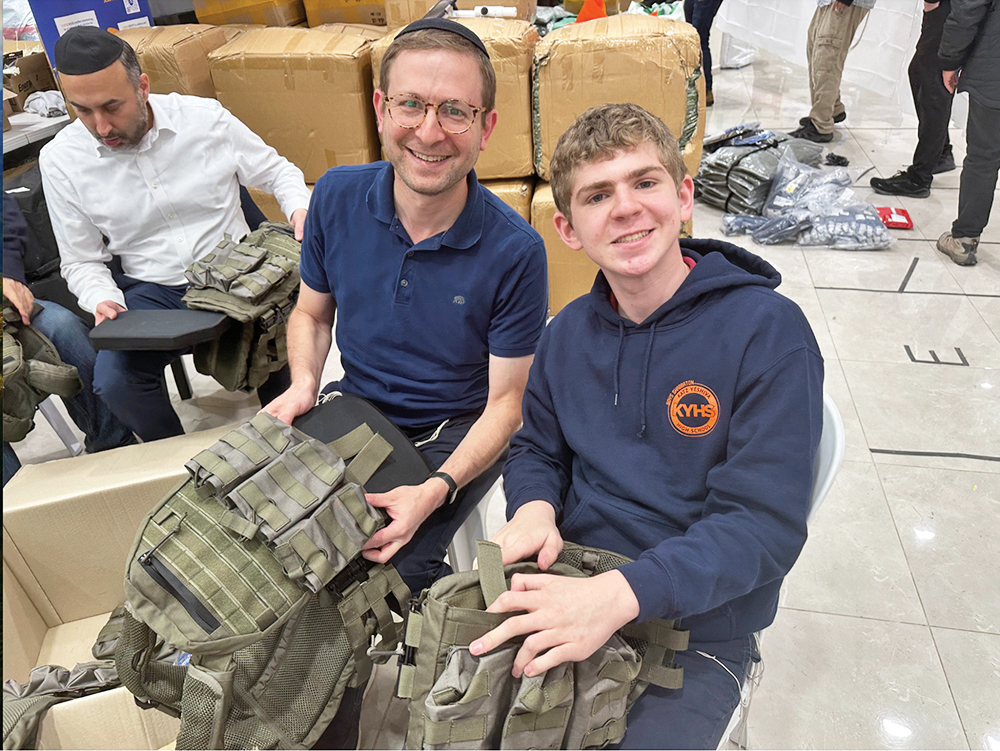
The Muschels were among 27 fathers and sons ages 12 to 16 from Florida, California, New York, New Jersey and Pennsylvania who participated in the five-day mission led by the OU Department of Synagogue Initiatives. From New Jersey, Jonathan and Azarya Tiger from Bergenfield and Mendy and Eitan Stein from Passaic attended.
“The chevra was outstanding,” said LINK (Los Angeles Intercommunity Kollel) Rosh Kollel Rabbi Asher Brander, who accompanied the group as the rabbi in residence. “We bonded very nicely and it was very special. The chinuch was tremendous and the engagement of fathers and sons in chesed activities was magical. It was a fabulous, transformative mission.”
Designed to strengthen both Israel’s citizens and mission participants, the trip centered on Torah, volunteerism/chizuk for Israeli communities, and supporting Tzahal.
“The mission enabled us to merge multiple communal values,” said OU Department of Synagogue Initiatives National Director Rabbi Adir Posy, who organized the trip and participated with three of his sons. Rabbi Posy is also the associate rabbi at Congregation Beth Jacob in Beverly Hills, and represented his kehilla as well.
“As a community, we strongly support Acheinu Bnei Yisrael,” he said. “By going, we showed that Jewish communities around the world are with them despite our physical distance and that we will drop everything to come and give them a hug.”
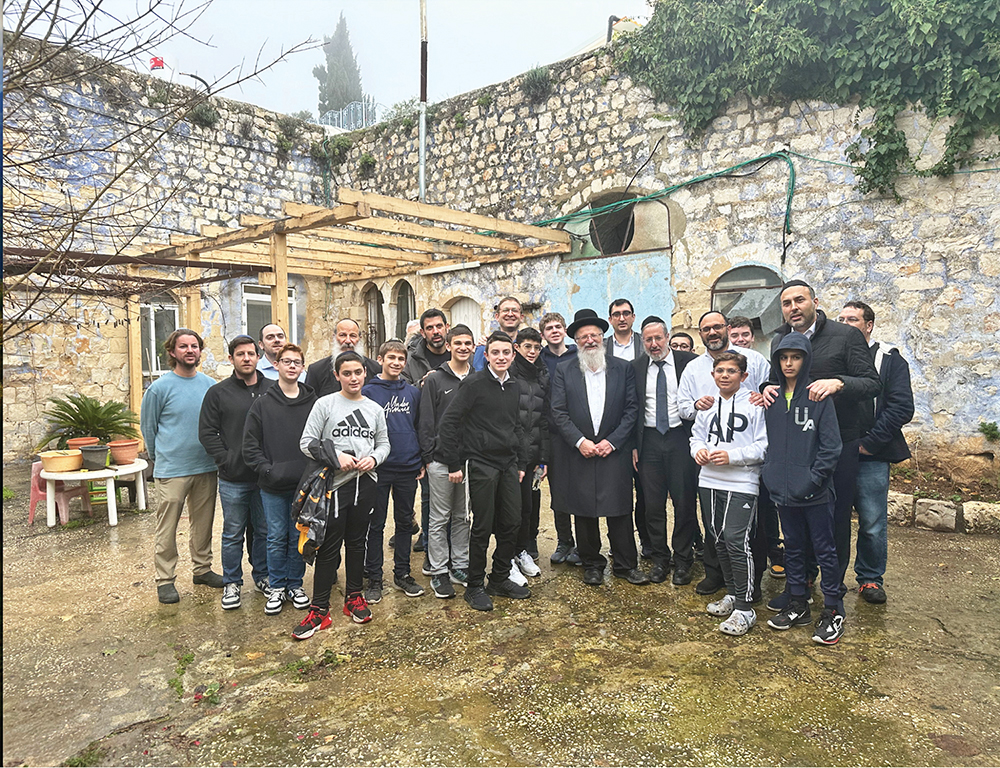
Rabbi Posy adds that the mission enabled fathers and sons to strengthen their connections through life-changing, powerful experiences of achdut and chesed. While this trip catered to fathers and sons, Rabbi Posy notes that the OU hoped to reinforce other familial bonds in the future.
The mission itinerary centered on the theme of “Am Yisrael’s resilience” and the trip was designed with the utmost sensitivity.
“We built the itinerary with the understanding that parents had chosen to share different information with their kids about the situation in Israel,” he said. “We were very, very sensitive to make sure that participants came away buoyed, excited and inspired.”
Rabbi Brander is proud that the trip was infused with Torah; fathers and sons learned together on the bus, at the Kotel, at Yeshivat HaKotel and the Hesder Yeshiva of Sderot, and made a siyum on Masechet Megillah.
Sixteen-year-old Azarya Tiger of Bergenfield, New Jersey marveled at the proximity of the Sderot yeshiva to the Gaza border.
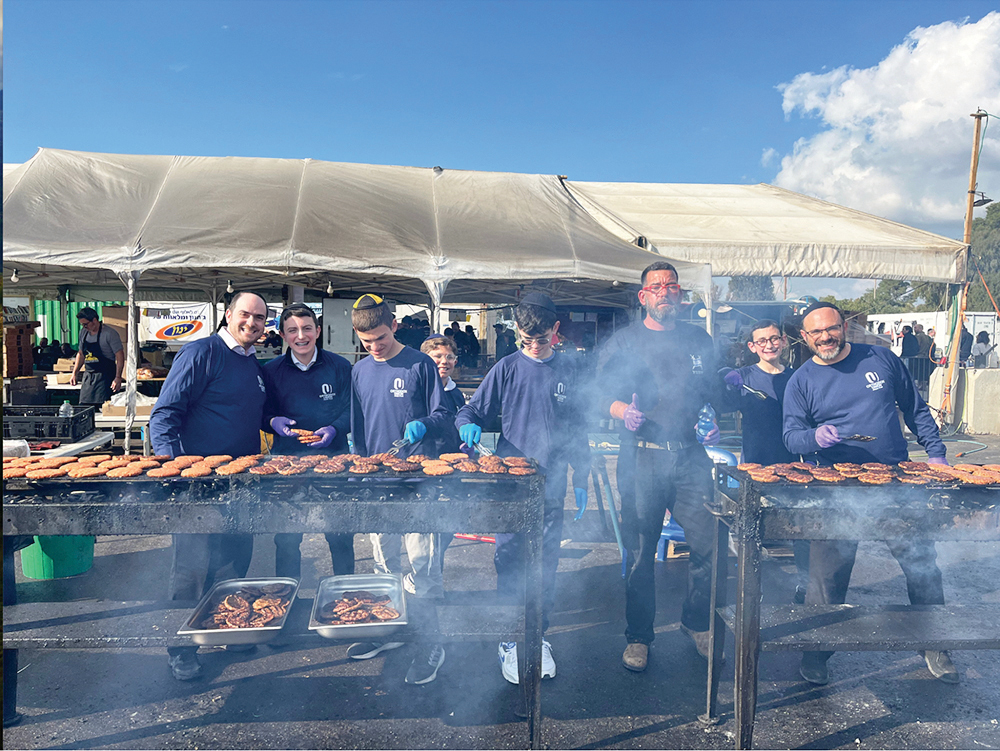
“To think that there’s a yeshiva in Sderot, one and a half kilometers from Gaza, and talmidim are sitting and learning there is wild,” he said.
Azarya’s father, Dr. Jonathan Tiger, was highly touched by a shiur delivered by Gush Etzion Chief Rabbi and Lev Academic Center (Jerusalem College of Technology) Rosh Yeshiva Rav Yosef Zvi Rimon, at the OU Israel Center in Jerusalem.
“Rav Rimon said that this is the Jewish army that knows the most Torah in history. It’s an amazing concept,” he said. “When you think about all of the talmidei chachamim who are in Gaza fighting the war, they’re not only fighting physically; they’re fighting on the Torah front. When he shared some of the questions he’s received from soldiers and the nation, it was very meaningful to me, because it’s not just about the actual battlefield. Torah is going to win this war too.”
Participants were also inspired by Yeshivat Netiv Aryeh Rebbe Rabbi Yaakov Thaler, who shared the lessons of emunah he had learned from having a son wounded in battle, and by Hesder Yeshiva of Sderot Rosh Kollel Rabbi David Fendel.
“Rav Fendel described the resilience and heroism of the yeshiva and people of Sderot,” recalled Rabbi Posy. “We were also very moved by the sign on the Beit Midrash stating, ‘This is the battlefield.’”
In addition to offering words of chizuk to adult evacuees from the South staying at various hotels, the group engaged their kids in sports and art activities, and played with younger children at a pop-up daycare. Other memorable initiatives included tomato-picking at a hothouse in Givat Koach, running a carnival for children of deployed soldiers in Kfar Pines, and a visit to the Kesher Tefillin workshop in Tzfat, where fathers and sons crafted tefillin for soldiers on the frontlines and met with Tzfat’s Chief Rabbi, Rav Shmuel Eliyahu.
Rabbi Brander recalled a particularly moving moment that occurred on the way to the factory:
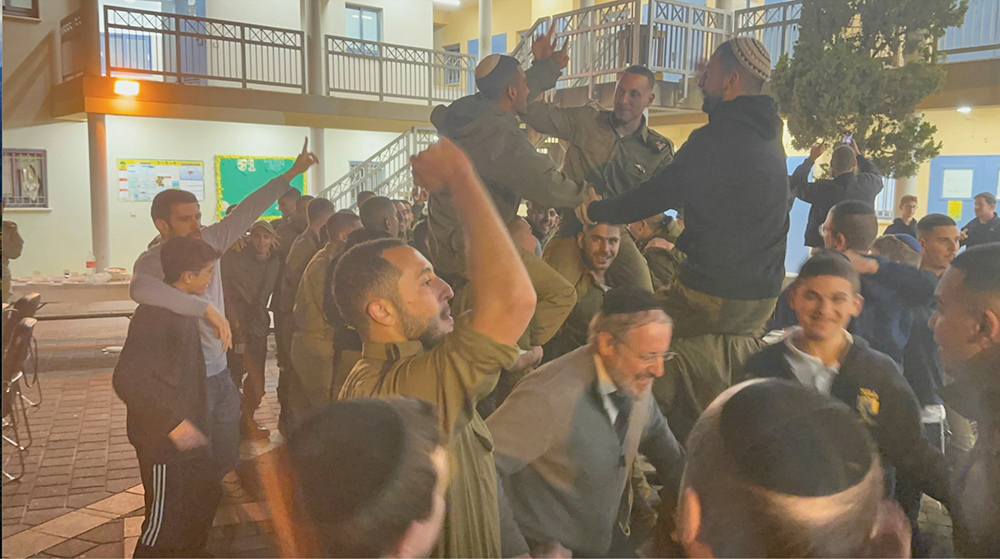
“We passed a resident who had made aliyah from Boston. She smiled widely and said, ‘I haven’t seen American visitors in such a long time. It’s so nice to see you. It feels so good.’ Just seeing this woman’s face light up was a very special moment. Even without knowing people, we felt a tremendous connection and sense that we’re all in this together.”
For many participants, the time spent with chayalim left a lasting impression. Fathers and sons ate lunch with soldiers after packing supplies at a local chamal (war room) in Efrat; distributed meals and tactical gloves, and assisted with various tasks at Tzomet Gilat, a rest stop for soldiers from Gaza; and delivered tactical gloves and treat-filled packages for Tu B’Shvat along with letters from their respective communities to soldiers at a base near the Gaza border.
“I was speaking to two of the chayalim and I gave them their packages, and one said, ‘You guys always make my day,’” recalled Eitan Stein, 13, of Passaic, New Jersey. “I thought, it’s such a small package but it made these people so happy. It was so inspiring.”
Eitan’s father Mendy was touched by the group’s visit to a Golani base, where chayalim were heading to the northern front after six months of training. The OU sponsored a barbecue in the soldiers’ honor the night before their departure, which culminated with spirited dancing and singing.
“Before the mission, we all did acts of chesed at home, and davened and gave tzedakah for Israel,” said Stein. “I wondered what kind of direct impact those deeds were having. But as we were leaving the base and dancing, I noticed a guard outside who wasn’t part of our simcha. I felt badly at first because he was missing out. Then I realized that his job is as important as every other soldier’s and anyone else’s. It hit me then, that all of our contributions matter, no matter how big or small. Each of us has a tafkid.”
Binyamin Muschel and his son Sruli were both amazed at the chayalim’s resilience and courage in the face of unbearable heartbreak. As Binyamin explained, “The day we went to the Golani base, we awoke to the horrible news of the death of over 20 soldiers in Khan Yunis. We drove through cities where people were lining the streets waiting for funerals.
“At the base, the soldiers sang, danced and proclaimed, ‘Am Yisrael Lo Mefached, (The nation of Israel is not afraid)’ with genuine passion and simcha. These kids had woken up to the same news and knew what they were about to face on the frontlines. To see their energy and emunah left us so encouraged. As much chizuk as we gave the many people in Israel, the chizuk we received in return was tremendous.”
Sruli felt similarly. “The soldiers were really amazing,” he said. “They showed that no matter what happens, they’re still b’simcha — they’re still persevering and moving on.”
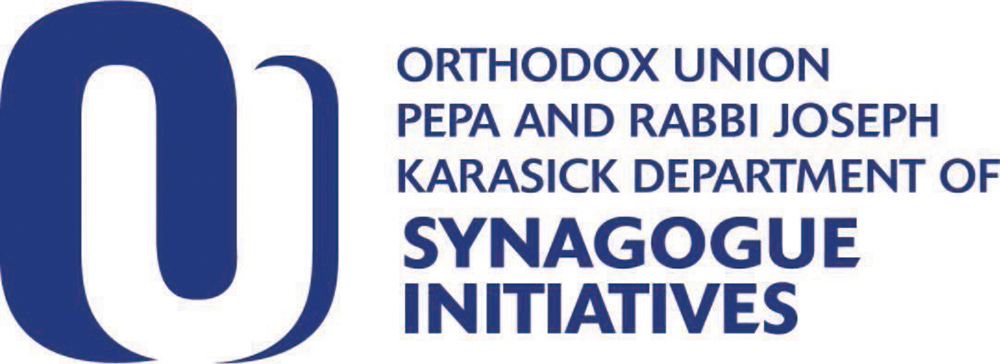
Other mission highlights included a chance to explore Tzfat and daven at the Ari shul, davening at the Kotel and eating breakfast in the Old City, and enjoying dinner and a kumzitz with Yeshivas Bircas HaTorah Dean Rabbi Avraham Willig at the OU Israel Center.
Reflecting on the mission, Sruli said, “It meant a lot to be able to go to Israel for the first time with family. The activities related to Torah, volunteerism, chizuk and support for chayalim made the trip amazing, because we weren’t just touring, we were helping people and being mechazek them. It was an incredible mission.”
For Binyamin, participating in an Israel mission together with his son was priceless.
“This would have been a special trip had I gone myself or with my wife,” he said. “But to do it with my son brought things to the next level. Being able to share these experiences with him, to be able to daven, learn, cry, sing, dance, do chesed, and take it all in with him by my side, and me by his side, was a unique experience — the likes of which I’ve never had before. I hope its impact will stay with us for a long time.”









